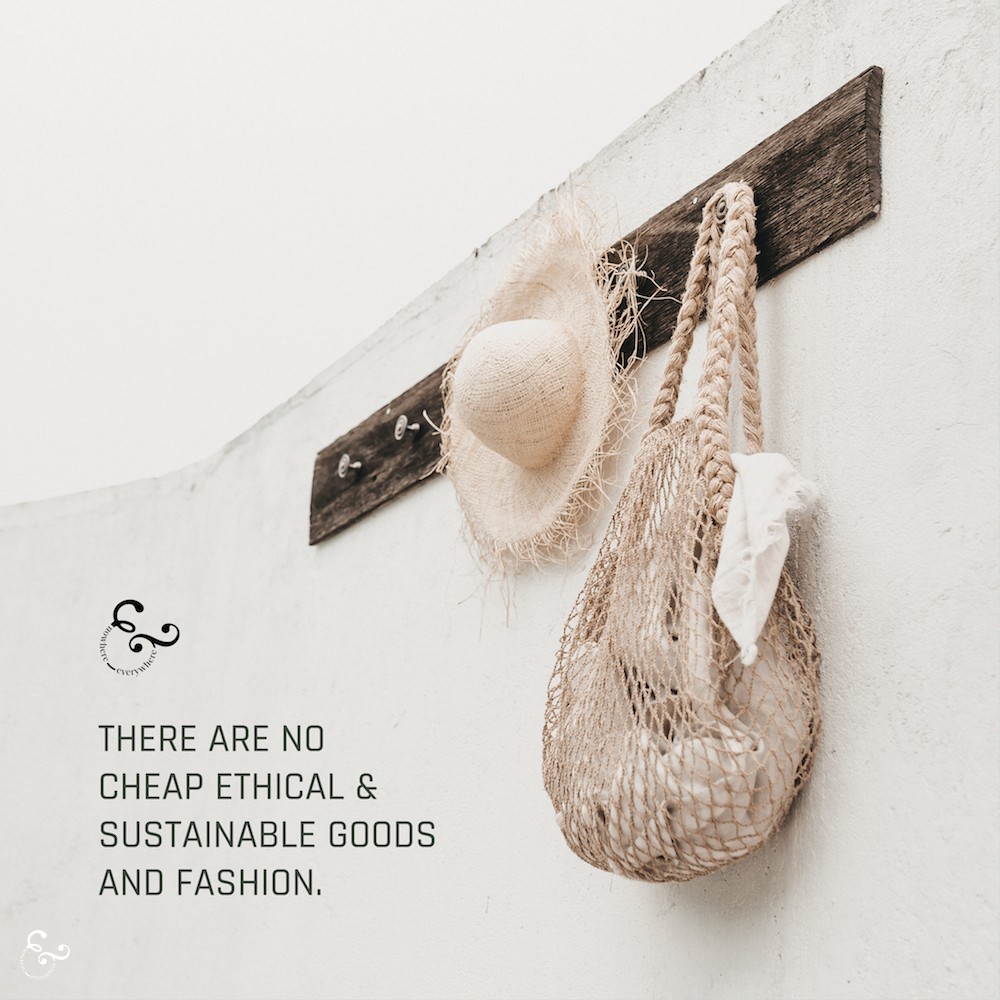One of the biggest barriers to the world of ethical sustainability is cost. To capitalize on that brands are beginning to greenwash their items to appeal as both cheap & ethical. They also want you to keep your purchasing habits but feel better about it.
Here’s some thoughts on that:
1. This isn’t sustainable or possible. Anything we do at this huge scale, using our Earth’s natural resources, whilst we constantly consume, will have a negative impact on our world. The entire concept of fast fashion and filling our spaces constantly (and then throwing everything away and doing it again) really need to change.
2. Ethical labor means decent wages and a good workspace (as a guide we ask, would we work there?). Safety (physically & emotionally). It means normal working hours, paid leave and restful lunchtimes. This is much more expensive. It should be.
3. Our system is built entirely around money. Whatever will make people richest, quickest will be done. The shareholder system drives profits only. Getting rich exploiting others & becoming a “philanthropist” is crazy. (Recommended reading: Winner Takes All).
4. Sustainable materials mean they have been created with a low impact on the environment, from happy growers on smaller farms. They don’t use harsh chemicals. They have a healthy end of life. They don’t ruin our environment at scale. Or they’re recycled. It is a lot of research to both develop and grow these products and figure out where to source the from. They’re expensive.
5. A lot of the truest sustainable goods are handmade, not machine made inside a massive factory. Cutting, ironing, sewing, labeling, packaging and closing your loop for no-waste all take time & care. Using traditional techniques takes even longer and is worth doing; and should be dually compensated for the skill and training to pass down to future generations.
6. If you know better, don’t shop at K-Mart, Walmart, Target, H&M, Zara or hundreds of others. They’re not ethical or sustainable, they don’t have transparent supply chains, they create consumerism & they rip off smaller creatives. Where we all can, let’s save, buy less & buy better. Try second-hand first. Support small businesses doing the right thing (life in that lane is hard!). Think of cost per wear.
7. We have to change the system. There needs to be top-down regulation on companies to make them accountable for the damage & ensure they are transparent so consumers don’t carry the burden. Advertising needs to change. Our consumption habits really need to change.
8. We have to fix inequality, colonization & poverty. If you’re working 3 jobs and can’t afford ethical goods that is not your fault. If you’re being exploited, this should never have happened. All parties, with varying experiences, should be brought to the table during policy discussions and serious policy design.
9. Don’t even get us started on $5 cotton bags & activist tees.


